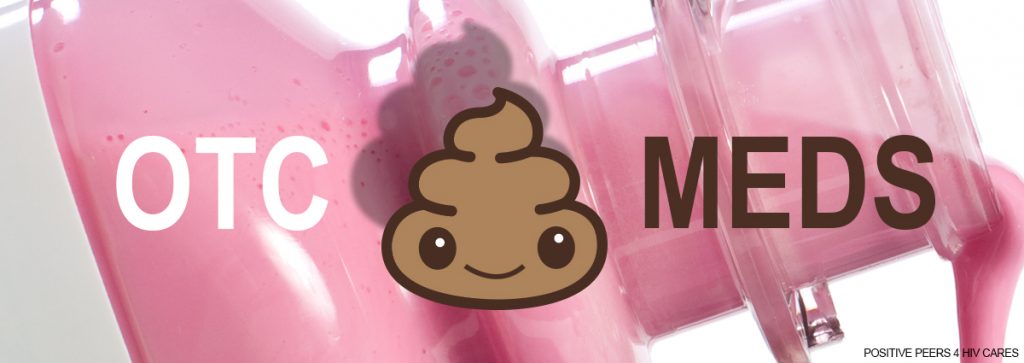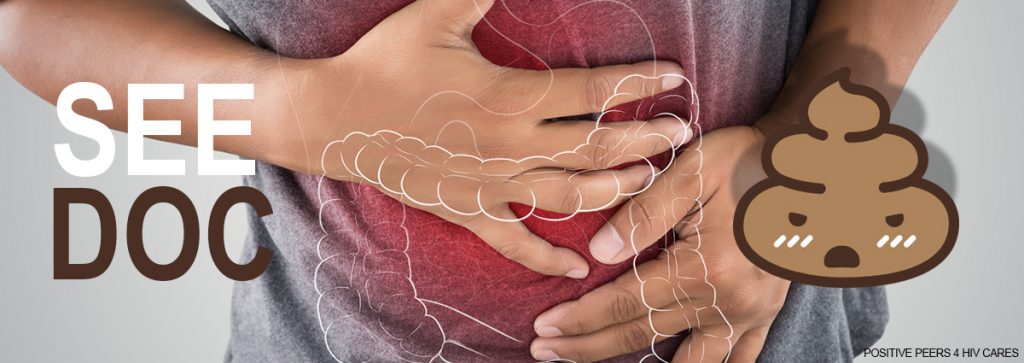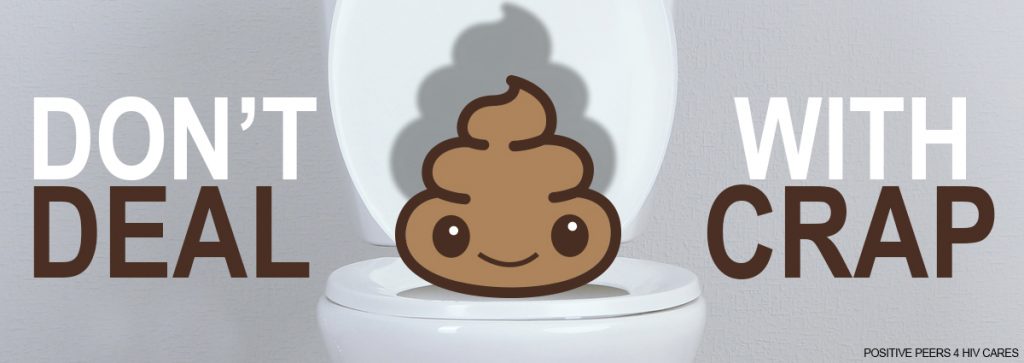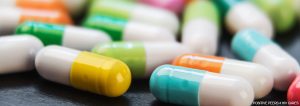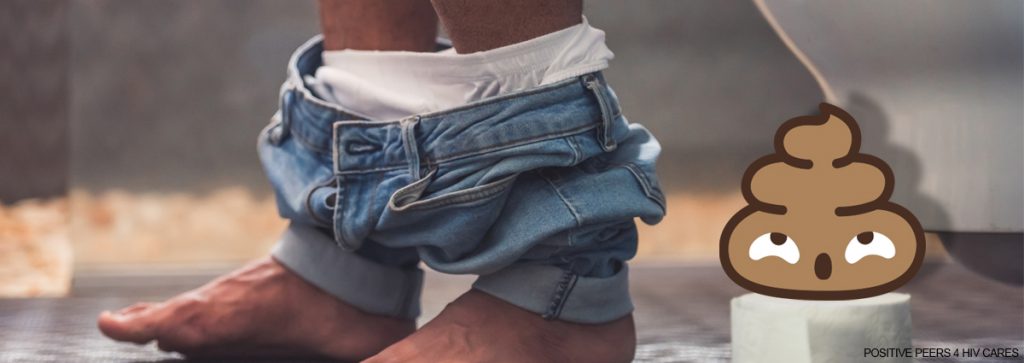
By: Ann K. Avery, MD, Infectious Disease Physician at MetroHealth Medical Center
There’s nothing worse than when you’re just trying to get through your day, but your insides won’t cooperate. You know that queasy feeling when you have to run to the bathroom all day — that’s diarrhea. It’s tough to spell and tougher to put up with. But for many people living with or without HIV, it’s a fact of life.
A nasty case of the runs can happen early on when someone is first exposed to HIV. That’s when the virus is going crazy in the bloodstream. People can feel like they’ve got a really bad case of the flu, and that usually includes bouts of diarrhea.
Different infections in your gut (stomach, intestines, etc.) can also cause diarrhea. You might know what that can be like if you’ve ever had food poisoning. It turns out many of the medications that fight HIV can also have diarrhea as a side effect.
Diarrhea can be mild, severe, or somewhere in the middle, but regardless, it’s uncomfortable. The question is, how do you deal with it when you’re living with HIV? WEll, we have some tips to keep in mind.
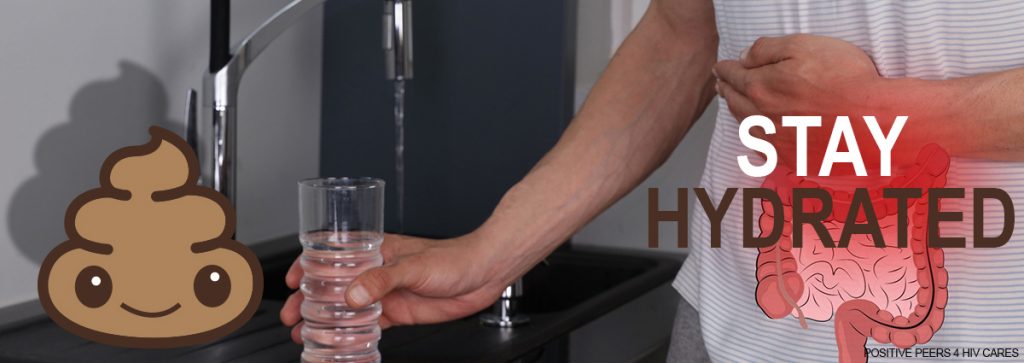
Don’t let diarrhea dry you out
When diarrhea passes through your body, most of the water in your system gets passed with it, leaving you dehydrated. That’s bad because your body needs water to do pretty much everything. Not to mention it can leave you feeling tired, irritable, or just plain gross.
This means when you have diarrhea, it’s a good idea to try to stay hydrated. The experts suggest drinking a half-gallon of water every day (that’s eight 8-ounce glasses). Some drinks like Pedialyte have minerals called electrolytes to help your body recover and rehydrate.
Come join our private, stigma-free, supportive community.
Health management tools with medication & appointment reminders.
Social networking in a community conversation & private chats.
Watch your diet
When you’re dealing with the runs, it’s normally a good idea to stay away from dairy products and drinks with caffeine — sometimes they can make diarrhea symptoms worse.
Getting more fiber in your diet also helps fight diarrhea. Dietary fiber comes from fruits, nuts, berries, vegetables, and grains. A good suggestion is to try to consume at least 30 grams of dietary fiber a day.
How much fiber do foods have? Here are a few examples:
- Apple: 4-5 grams
- Whole-wheat bread: 2 grams per slice
- Oat bran muffin: 5 grams
A product called Metamucil lets you take a capsule or mix a powder into a glass of water and to get an extra dose of fiber. Depending on the kind you get, it could have up to 5 grams of fiber per serving.
(Here’s a list of high-fiber foods, courtesy of the Mayo Clinic.)
Try over-the-counter medicines
Some medicines at the drug store can also help with diarrhea. If you think taking something will help you feel better, products like Pepto-Bismol, Kaopectate, and Imodium are what you want to look for.
Keep in mind that these products are only for temporary bouts of the runs that last a day or two. Diarrhea that won’t go away after a few days or that gets worse requires a trip to the doctor’s office.
When to see the doctor
If your HIV meds are giving you tummy troubles, then you may need a different prescription. Your doctor can help you to find a solution that works for you.
Most side effects go away after a few days as your body adapts to the medication in your bloodstream. But everybody’s biology is slightly different. Pay attention to how your body reacts and feel free to call the doctor’s office if your diarrhea doesn’t go away.
If you’re having pain or notice blood in your stool, you might have a more serious problem that requires immediate medical attention. Call your doctor and schedule an appointment as soon as you can.
It’s all about quality of life
Living with HIV might mean you get used to taking meds, but don’t let side effects get you down! Millions of people around the world are living with HIV, and doctors have plenty of resources and options to help you feel more comfortable.
We’re just gonna go ahead and say it: You shouldn’t have to deal with all that crap!
Related Blogs:

